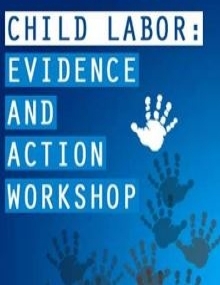World Child Labor Day this year falls on June 12, 2016. According to the most recent ILO estimates, 168 million children are trapped in child labor worldwide, of which 85 million work in hazardous conditions while 5.5 million are victims of forced labor. Child labor is a complex phenomenon influenced by a multitude of factors, and is often exacerbated by situations of fragility, conflict and violence (FCV), where social protection systems might be at their weakest or non-existent.
While a large set of policy instruments can be used to tackle child labor, predicting the impact of such interventions is far from straightforward. Indeed, limited evidence exists on the impact of policies and programs on child labor therefore hampering policy efforts to address the child labor issues.
To help close this evidence gap, the World Bank’s Development Impact Evaluation (DIME) and Understanding Children’s Work (UCW) are organizing a workshop to take stock of existing evidence on the efficacy of policy interventions to address child labor, with a particular focus on FCV settings. The workshop also aims to experiment with promising policy interventions that might have higher returns and to foster dialogue between practitioners and academic experts on child labor policies.
Workshop Objectives:
· discussing and validating findings from a review paper on the state of knowledge and gaps on the effects of different child labor policy interventions; and
· formulating a research agenda to investigate how public works programs might influence child labor outcomes in developing and fragile contexts.
Last Updated: Jun 06, 2016
